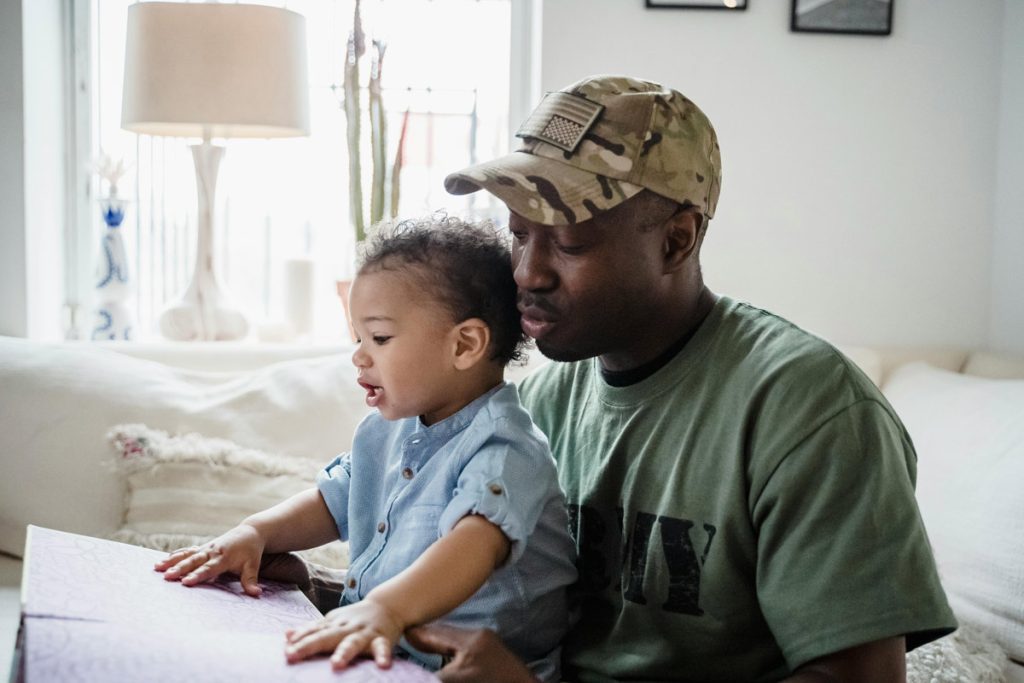When a service member returns home, the transition to civilian life can be filled with both relief and unexpected challenges. For many veterans, the burdens of military service don’t end when deployment does. Some carry visible wounds, while others struggle to heal from invisible ones, including addiction. Families often find themselves standing at the front lines of these struggles, eager to help but uncertain of the best way forward. The good news is that loved ones can play a vital role in a veteran’s addiction recovery, offering stability, encouragement, and connection during one of the most challenging chapters of their life.
Supporting a veteran through addiction recovery requires a deep understanding of both the unique nature of their experience and the complexities of substance use disorders. Recovery isn’t linear, and families who educate themselves, maintain healthy boundaries, and access community resources can make a lasting difference in their loved one’s healing journey.
Understanding the Unique Challenges Veterans Face
Addiction is complex for anyone, but veterans often face added layers of difficulty that set their experience apart from civilians. Military culture emphasizes resilience, discipline, and toughness — values that can make it hard for veterans to acknowledge vulnerability or ask for help. This reluctance is further compounded by the stigma that still surrounds mental health issues within some segments of the armed forces.
Service members may struggle with post-traumatic stress disorder (PTSD), depression, anxiety, chronic pain, or traumatic brain injuries (TBIs), all of which are known risk factors for substance use. Many veterans use drugs or alcohol to self-medicate symptoms or cope with emotional pain that feels overwhelming.
Additionally, reintegrating into civilian life presents its own stressors: loss of military identity, difficulties finding employment, financial pressures, and strained relationships. All of these factors create an environment where addiction can take hold or worsen.
How can families help veterans recover from addiction?
Families can help veterans recover from addiction by offering nonjudgmental support, educating themselves about addiction and PTSD, setting healthy boundaries, and encouraging community involvement. Accessing veteran-focused treatment programs and family support groups also strengthens recovery and builds a lasting foundation for healing.
The Power of Family Support
For veterans facing addiction, a stable and compassionate home environment can be one of the most powerful tools for recovery. While professional treatment is often essential, families serve as the emotional foundation that can help sustain long-term healing.
First and foremost, family members should focus on creating a nonjudgmental and safe space where open conversations are encouraged. Veterans may be carrying shame or guilt related to their addiction, and judgmental attitudes — even if well-intentioned — can cause them to withdraw rather than engage with treatment.
Listening with empathy, expressing unconditional love, and avoiding blame go a long way in making a veteran feel seen and supported. It’s important to recognize that addiction is not a moral failing but a chronic condition that requires medical care and long-term management.
Educating Yourself as a Family Member
Knowledge is one of the strongest tools a family can possess. Learning about addiction, PTSD, and other mental health conditions common among veterans helps loved ones better understand what their family member is facing. Numerous reputable organizations offer educational materials and workshops specifically designed for families of veterans, including the U.S. Department of Veterans Affairs (VA), the National Institute on Drug Abuse (NIDA), and the Substance Abuse and Mental Health Services Administration (SAMHSA).
By understanding triggers, relapse risks, and the recovery process, family members are better equipped to provide meaningful, informed support. Education also helps set realistic expectations; recovery is not a straight path, and setbacks may occur. Being mentally prepared for these possibilities helps families avoid feelings of helplessness or frustration during difficult moments.
Navigating Treatment and Recovery Resources
- VA Specialized Programs: The VA offers integrated addiction treatment programs that combine substance use care with mental health services. These programs address the interconnected nature of PTSD, anxiety, depression, and addiction, offering veterans a more comprehensive recovery approach.
- Residential and Outpatient Treatment Options: Depending on each veteran’s needs, treatment may include residential rehab programs, structured outpatient care, group therapy sessions, or medication-assisted treatment. These flexible options allow veterans to receive care while balancing other life responsibilities.
- Nonprofit and Community-Based Services: Outside of the VA system, numerous nonprofit organizations provide addiction recovery services specifically for veterans. Groups such as the Wounded Warrior Project, Veterans of Foreign Wars (VFW), and local chapters of Narcotics Anonymous (NA) or Alcoholics Anonymous (AA) frequently host veteran-focused meetings and peer support groups. Additionally, families and community members can explore ways to help veterans in your community to extend their support beyond treatment programs.
- Support for Family Members: Organizations such as Al-Anon and the National Alliance on Mental Illness (NAMI) offer family members of Veterans education, peer counseling, and support groups. These resources help loved ones better understand addiction while providing them with emotional support throughout the veteran’s recovery journey.
Setting Boundaries While Remaining Supportive
While family involvement is essential, it’s equally important for loved ones to maintain healthy boundaries. Supporting a veteran through recovery doesn’t mean accepting harmful behavior or sacrificing your own well-being.
Boundaries help preserve trust, safety, and respect for everyone involved. This might include limiting financial assistance, refusing to enable substance use, or establishing clear guidelines for acceptable behavior in the home. Family therapy or counseling can be a valuable resource for establishing these boundaries while ensuring open communication remains intact.
The Importance of Community and Purpose
Isolation can be one of the most dangerous factors for a veteran struggling with addiction. Encouraging involvement in community programs, veteran service organizations, or volunteering opportunities can help foster a renewed sense of purpose and connection.
Many veterans find healing through activities that allow them to give back, mentor others, or engage with fellow service members who understand their experience. Finding meaningful roles in the community can strengthen resilience, rebuild self-esteem, and reduce the temptation to turn to substances as a coping mechanism.
Some nonprofit programs even use creative fundraising to support these efforts — initiatives such as car or motorcycle donations have been used to fund veteran recovery services, build treatment centers, and expand peer support networks. These programs not only provide tangible assistance but also remind veterans that they are part of a larger network of people who care.
Healing Is a Family Journey
Addiction recovery for veterans is rarely a solitary process. Family involvement, when grounded in empathy, education, and healthy boundaries, can be a powerful catalyst for healing. As veterans confront the complex challenges of addiction, their loved ones serve as allies, advocates, and anchors, offering the emotional stability necessary to navigate setbacks and celebrate victories along the way.
While the road may be long, recovery is possible; with the right support system in place, veterans and their families can work together toward lasting healing, renewed purpose, and a healthier future.
About the Author: Jeremy Silverstein is Vice President of Operations and Vehicle Dispatching at Veteran Car Donations. During the years he’s been with the organization, he has become quite an expert in the industry and has handled tens of thousands of donated vehicles.
Photo by George Pak: https://www.pexels.com/photo/a-father-and-child-holding-a-coloring-book-7983832/
The opinions and views expressed in any guest blog post do not necessarily reflect those of www.rtor.org or its sponsor, Laurel House, Inc. The author and www.rtor.org have no affiliations with any products or services mentioned in the article or linked to therein. Guest Authors may have affiliations to products mentioned or linked to in their author bios.
Recommended for You
- When the World’s Pain Becomes Your Own: Understanding Secondary Traumatic Stress - February 17, 2026
- How to Keep Love Alive: The Balance Between Romance and Routine - February 12, 2026
- The Power of Peer Support: How Young Adults Navigate Mental Health Recovery Together - February 9, 2026







